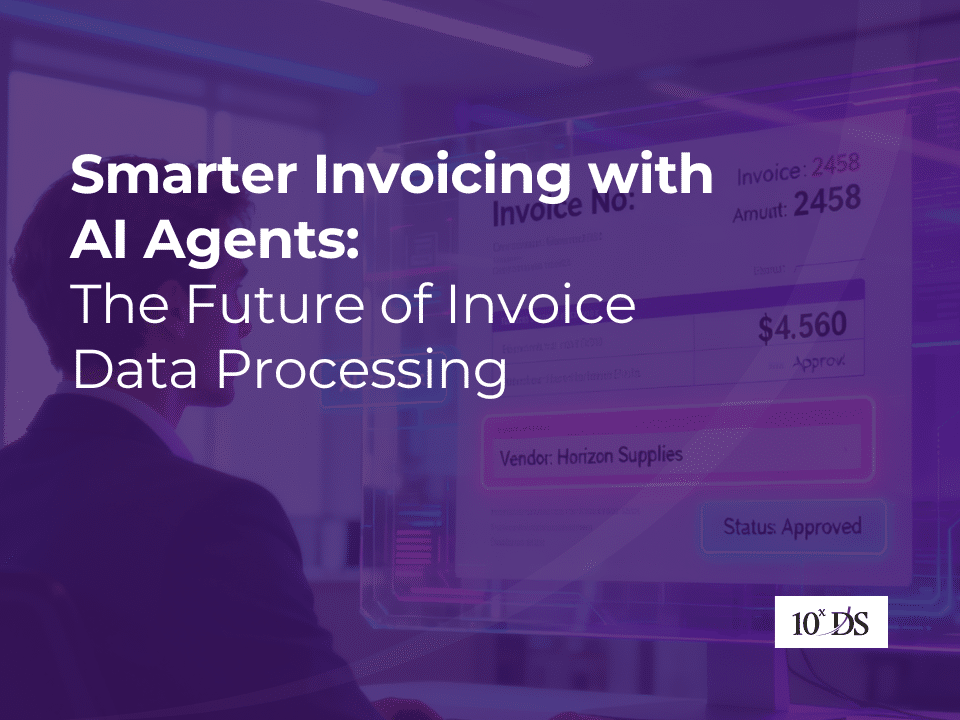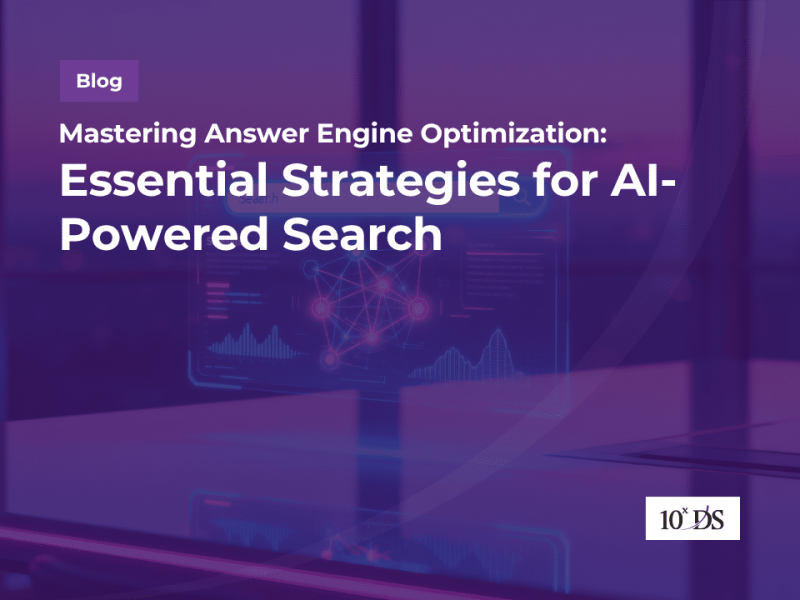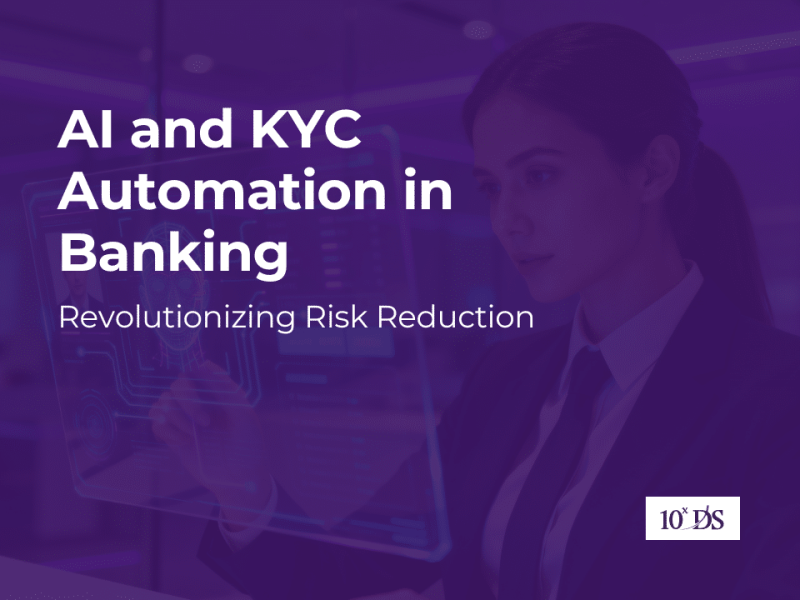
Smarter Invoicing with AI Agents: The Future of Invoice Data Processing
For decades, the accounts payable department has been a hub of repetitive, manual, and error-prone work. The process is universally familiar: an invoice arrives via email, mail, or fax. An employee prints it, stamps it, manually keys the data into an ERP or accounting system, routes it for approval, and finally, schedules it for payment. It’s a linear, time-consuming, and costly workflow that stifles productivity and strategic financial insight. For a function so critical to cash flow and supplier relationships, this reliance on manual effort is a significant operational bottleneck. A case study by Cozentus showed that using an AI-powered RPA solution reduced invoice processing time by 65%, cut costs by 30%, and improved accuracy to 90%. Today, advancements in AI for invoice processing are redefining how organizations approach these challenges. Among these advancements, the rise of the Invoice AI Agent represents a powerful leap forward, making invoice workflows faster, more accurate, and more reliable.
The Limitations of Manual and Traditional Approaches
Traditional invoice processing has always relied on human data entry, manual verification, and repetitive cross-checking. This legacy approach is fundamentally fragile, creating a workflow riddled with inherent vulnerabilities that strain resources and introduce risk. The core of the problem lies in its dependence on human intervention at nearly every stage. Each manually entered data point is a potential point of failure, from transposing numbers to misreading handwritten notes or simply overlooking a line item. This not only creates a high error rate but also forces finance teams to spend an inordinate amount of time on tedious verification and correction cycles, diverting them from more valuable analytical work.
The introduction of basic Optical Character Recognition (OCR) technology promised a path forward, but it ultimately delivered only a partial solution. While effective at converting scanned images into machine-readable text, traditional OCR lacks the cognitive ability to understand the context of that text. It can digitize words but cannot comprehend their meaning or relationship to one another. Consequently, these systems falter when faced with the real-world diversity of invoice formats, layouts, and terminologies. A slight design change from a supplier, a different font, or a poor-quality scan—such as a faxed document or a coffee-stained paper—can cause the system to misread critical information like totals, dates, or purchase order numbers. The output still requires a human operator to review, interpret, and correct the data, merely shifting the bottleneck rather than eliminating it.
Why AI for Invoice Processing Matters
AI goes beyond digitization. Instead of simply extracting text from documents, AI can now interpret and understand context. It adapts to different invoice templates, identifies relevant fields such as vendor names, invoice numbers, tax details, and payment terms, and ensures they are categorized correctly. Unlike rigid rule-based systems, AI models learn continuously from every processed invoice. This makes them highly adaptive in handling complex, unstructured, or inconsistent data. The technology enables businesses to achieve higher data accuracy, faster turnaround times, and smoother integration with existing ERP or accounting systems.
Advantages of AI Agents in Invoice Processing
Higher Efficiency
Invoice management typically involves repetitive and time-consuming steps such as data entry, validation, and cross-checking. AI agents eliminate the need for employees to manually sift through large volumes of invoices by automating these steps. They can extract data directly from documents, match it with purchase orders, and validate line items instantly. This reduces the administrative burden on finance teams, enabling them to spend more time on meaningful tasks like financial planning, vendor negotiations, or analysing cash flow trends. The overall process becomes faster, leaner, and less dependent on human availability.
Cost Optimization
Every manual error in invoice handling can lead to costly consequences—whether in the form of late fees, duplicate payments, or fines for non-compliance. By relying on AI agents for invoice processing, organizations minimize these risks. Automation reduces the number of staff hours required, optimizes workflows, and lowers operational overheads. Over time, these savings accumulate into measurable financial gains, making invoice automation not just a productivity enhancer but also a cost-control strategy.
Improved Accuracy
Human error is a natural byproduct of repetitive tasks, but in finance, even small inaccuracies can cause big problems. AI agents are equipped with advanced extraction and validation capabilities, ensuring that invoice data is entered correctly every single time. They can recognize vendor details, tax information, invoice numbers, and payment terms across varied formats, leading to accurate records and cleaner financial reporting. This accuracy also reinforces compliance with organizational policies and regulatory frameworks.
Faster Approvals
Delays in invoice approvals often result in strained vendor relationships and disrupted cash flow. AI-powered approval workflowssolve this by routing invoices directly to the appropriate stakeholders in real time. If exceptions are detected, they are flagged immediately rather than sitting unnoticed in a queue. This drastically shortens approval cycles, ensuring vendors are paid on time and cash flow remains predictable. The faster turnaround not only boosts efficiency but also builds trust and goodwill with suppliers.
Better Insights
Beyond automation, AI agents act as data enablers. They generate detailed reports and dashboards that highlight key performance indicators such as average processing time, error rates, and payment timelines. These insights provide leaders with a deeper understanding of the organization’s financial health and operational bottlenecks. Instead of reacting to problems, decision-makers can proactively identify areas for improvement, optimize payment schedules, and plan budgets with greater accuracy.
Use Cases of Invoice Processing AI Agents
The flexibility of Invoice Processing AI Agents allows them to adapt to different industries, each with its unique challenges and requirements. Here are some notable scenarios:
E-Commerce
Online businesses handle a flood of invoices from multiple suppliers across geographies. Manually verifying each invoice against purchase orders is tedious and prone to delays. AI agents streamline this by automatically extracting invoice data, validating it against purchase records, and routing it into approval workflows. Payments are processed quicker, ensuring suppliers are satisfied and vendor relationships stay strong—a critical factor in the competitive e-commerce space.
Healthcare
Hospitals, clinics, and healthcare providers often deal with a complex web of invoices from service providers, medical suppliers, and contractors. Compliance with healthcare regulations adds another layer of difficulty. AI agents can take over by automating invoice receipt, validation, and approval while ensuring adherence to industry standards. This not only saves time but also reduces compliance risks, allowing healthcare organizations to focus more on patient care rather than administrative hurdles.
Financial Services
Banks and other financial institutions generate a variety of invoices related to transactions, services, and operational costs. Given the regulatory scrutiny in this sector, accuracy and compliance are non-negotiable. AI agents help streamline these processes by validating invoices, automating approvals, and ensuring that every step aligns with compliance requirements. The result is higher productivity, accurate records, and reduced risk of regulatory breaches.
Education
Educational institutions—from schools to universities—deal with invoices for supplies, facility management, and outsourced services. Manual processing often consumes valuable administrative bandwidth that could otherwise be directed toward student-focused activities. AI agents capture invoice data, align it with institutional workflows, and route approvals automatically. This lightens the administrative load, improves efficiency, and helps educational institutions direct more of their resources toward academic and student needs.
Transforming Finance Teams with AI Agents for Invoice Processing
Finance teams often face bottlenecks when scaling invoice operations. With AI agents, these challenges can be significantly reduced. Instead of spending hours reviewing repetitive entries, finance professionals can trust the Invoice AI Agent to handle routine tasks. This shift allows them to focus on tasks that require judgment, like vendor negotiations, cash flow optimization, and financial planning.
Future Possibilities with AI Agents for Invoice Processing
The capabilities of AI agentsare expected to expand further. We can anticipate more advanced predictive features, such as forecasting payment timelines, detecting fraudulent activities, and even negotiating terms automatically. As AI becomes more interconnected with enterprise systems, Invoice AI Agents will not only process invoices but also provide actionable insights that support strategic financial decisions.
Another exciting possibility is real-time collaboration. AI-powered Invoice AI Agents can interact with other AI agents in procurement, logistics, or vendor management. This creates an ecosystem where information flows seamlessly across business functions, reducing silos and improving operational agility.
Conclusion
The complexity of managing invoices has long been a challenge for finance teams. With AI for invoice processing, businesses are moving toward a new era where accuracy, efficiency, and intelligence define how financial operations are run. The Invoice AI Agent exemplifies this shift, bringing autonomy and adaptability into invoice workflows. Organizations that adopt AI agents for invoice processing gain more than just automation—they gain a reliable partner that strengthens operational efficiency and frees up human potential for higher-value work.
By embracing this new approach, businesses set themselves up for greater financial control, improved vendor relationships, and a future where invoice management is no longer a burden but a streamlined, intelligent process.


